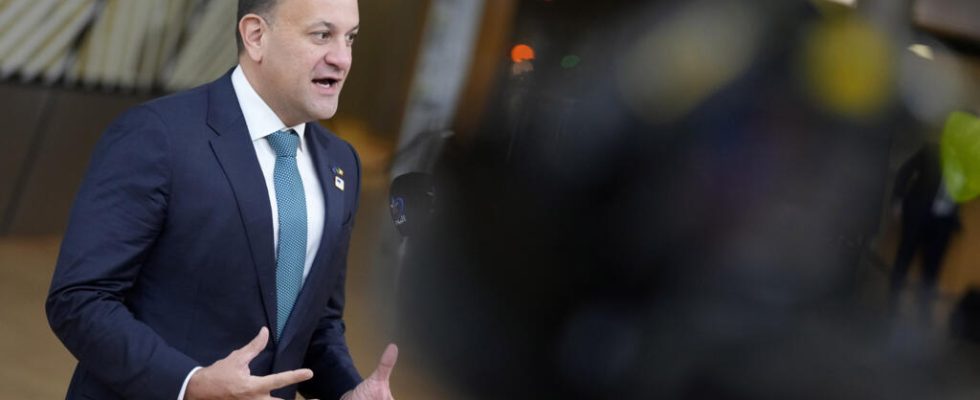This Wednesday, March 20, Irish Prime Minister Leo Varadkar announced, to everyone’s surprise, his resignation as head of the center-right coalition government, saying he believed he was no longer ” the best person for this position “.
2 mins
Leo Varadkar45 years old, visibly moved, cited reasons “ both personal and political » by announcing his departure in a statement to the press, a year before the scheduled date of the next elections. “ I resign from the presidency and management of the (center-right party, editor’s note) Fine Gael and will resign as Prime Minister as soon as my successor is able to take office “, did he declare.
The man had been head of government since December 2022. In 2017, then aged 38, this mixed-race and gay doctor became the youngest Prime Minister of a Ireland long considered very conservative. He gave way between 2020 and 2022 to Micheal Martin, leader of another party participating in the coalition and now Minister of Foreign Affairs.
“ Privilege »
“ I have had the privilege of serving in public office for 20 years, 13 of which were in government and seven as leader of my party, most of which as Prime Minister of this great country. “, recalled Leo Varadkar. “ After seven years in office (at the head of his party, editor’s note), I no longer feel like I’m the best person for this job. “, he nevertheless admitted.
“ Politicians are human beings and have their limits “, he added. “ We give everything until it is no longer possible and then we have to turn the page “. His departure comes after the debacle of the referendum proposed on March 8 by the government to modify the references to women and the family in the Constitution, written in 1937.
Amendments rejected
The two amendments were largely rejected, more than 67% for the one broadening the concept of family beyond the notion of marriage and more than 73% for the one erasing from the text the priority role of mothers in ensuring “ domestic duties » in a home. The vote had crystallized discontent in the country of five million inhabitants and the government had been accused of having poorly prepared the ground even though almost the entire political class had said it was in favor of these changes.
Read alsoIreland: “no” victory in the referendum on the place of women and the family in the Constitution
